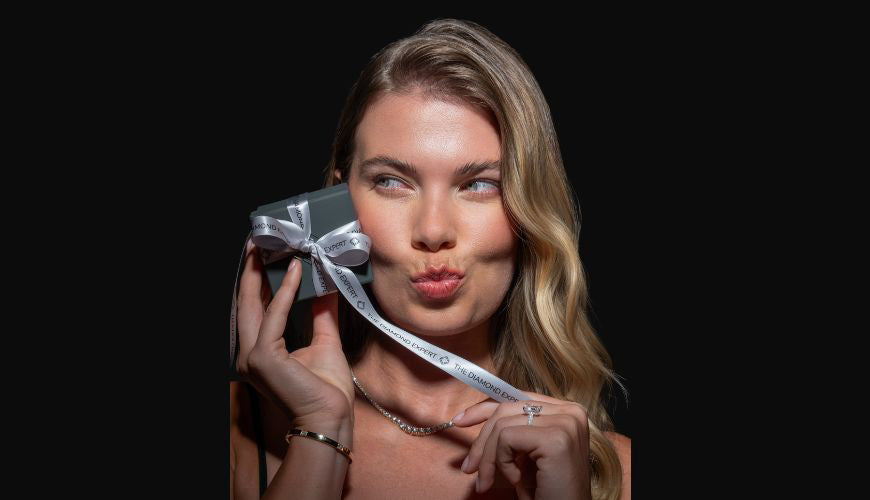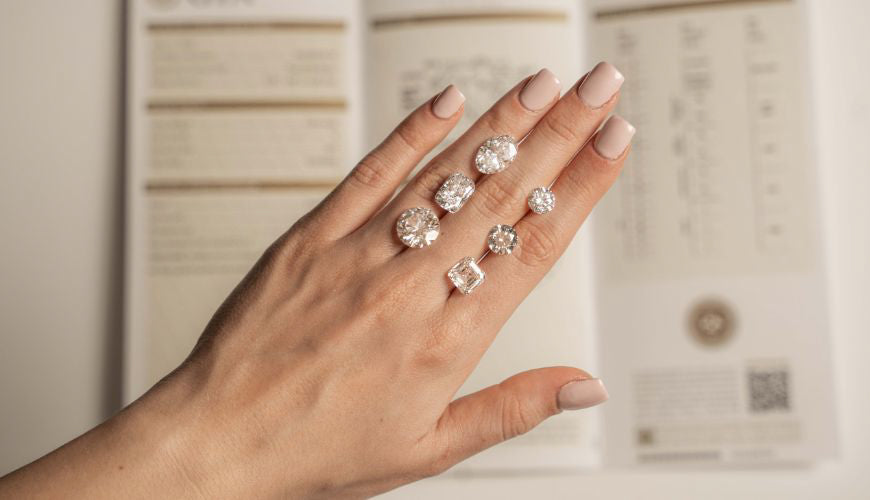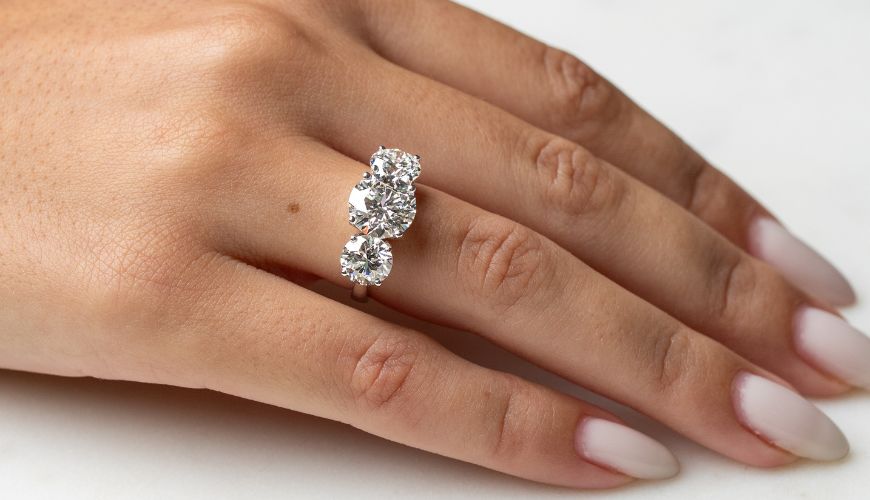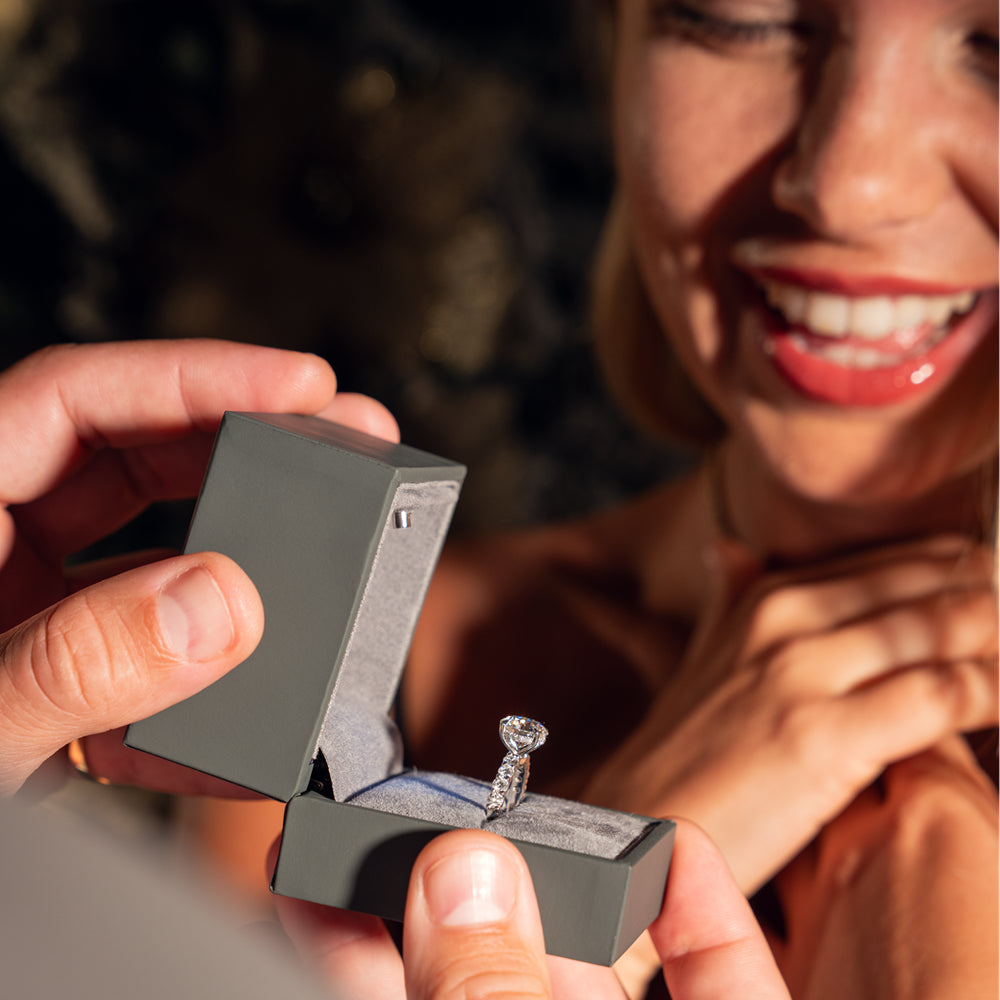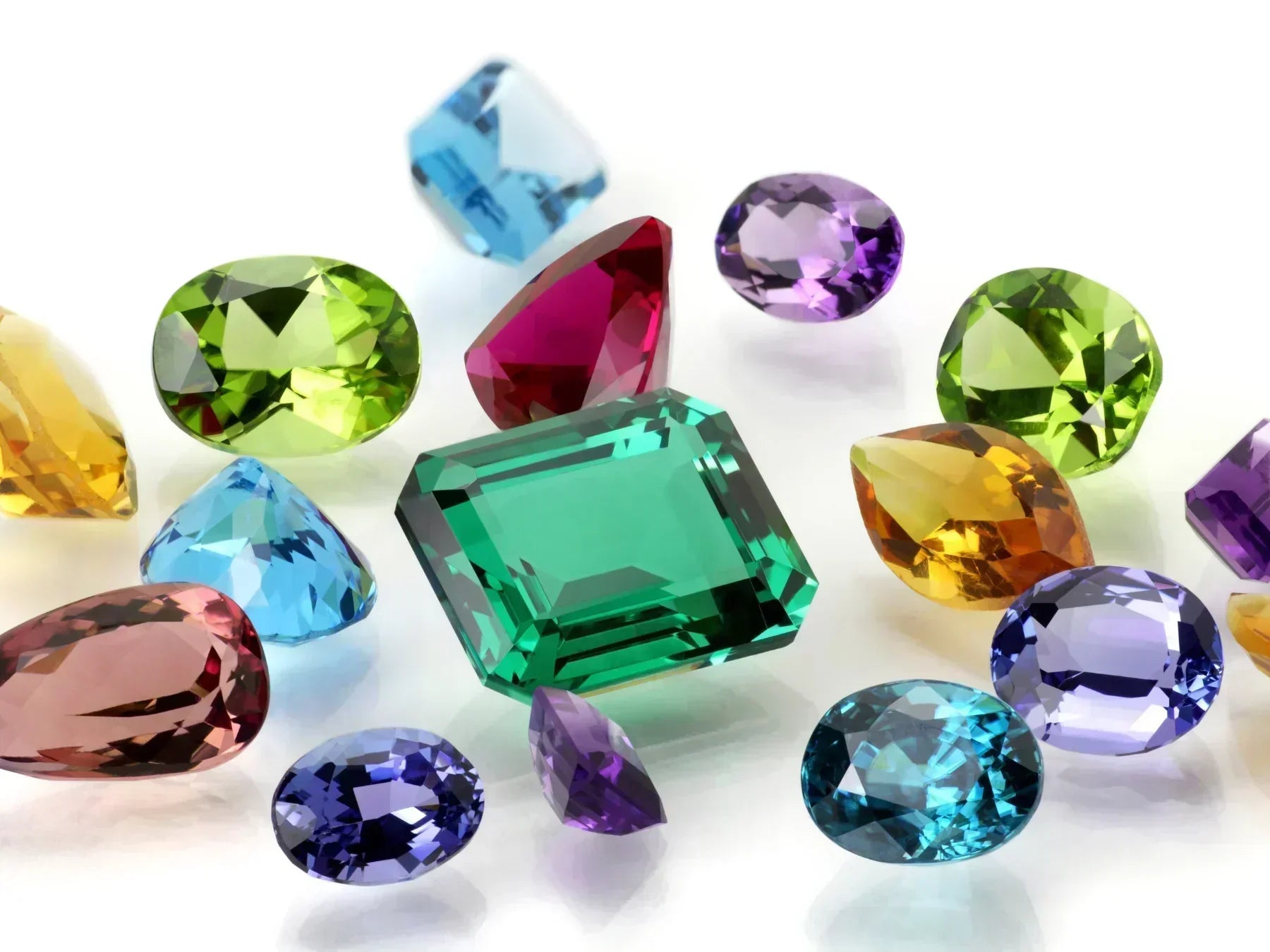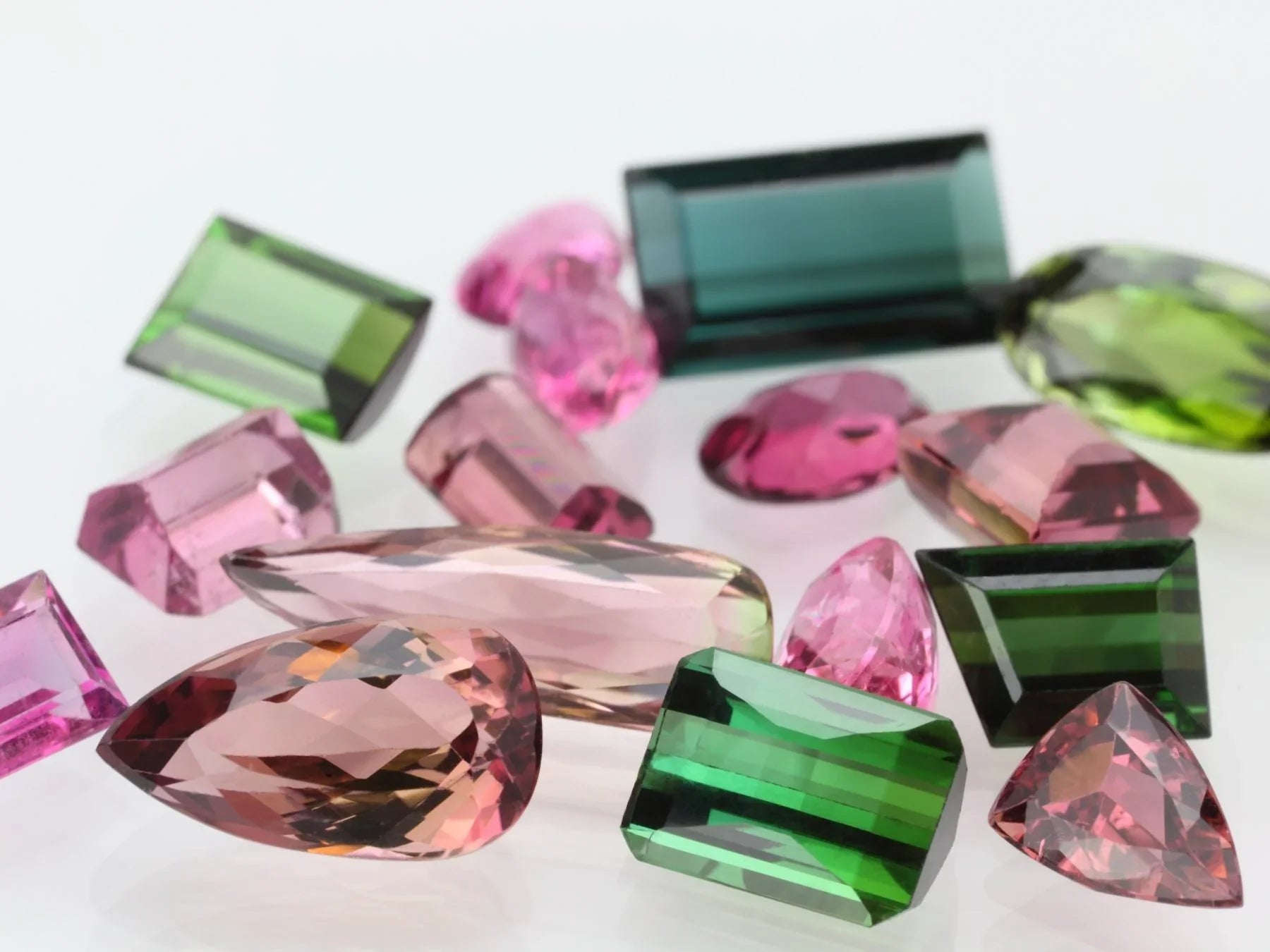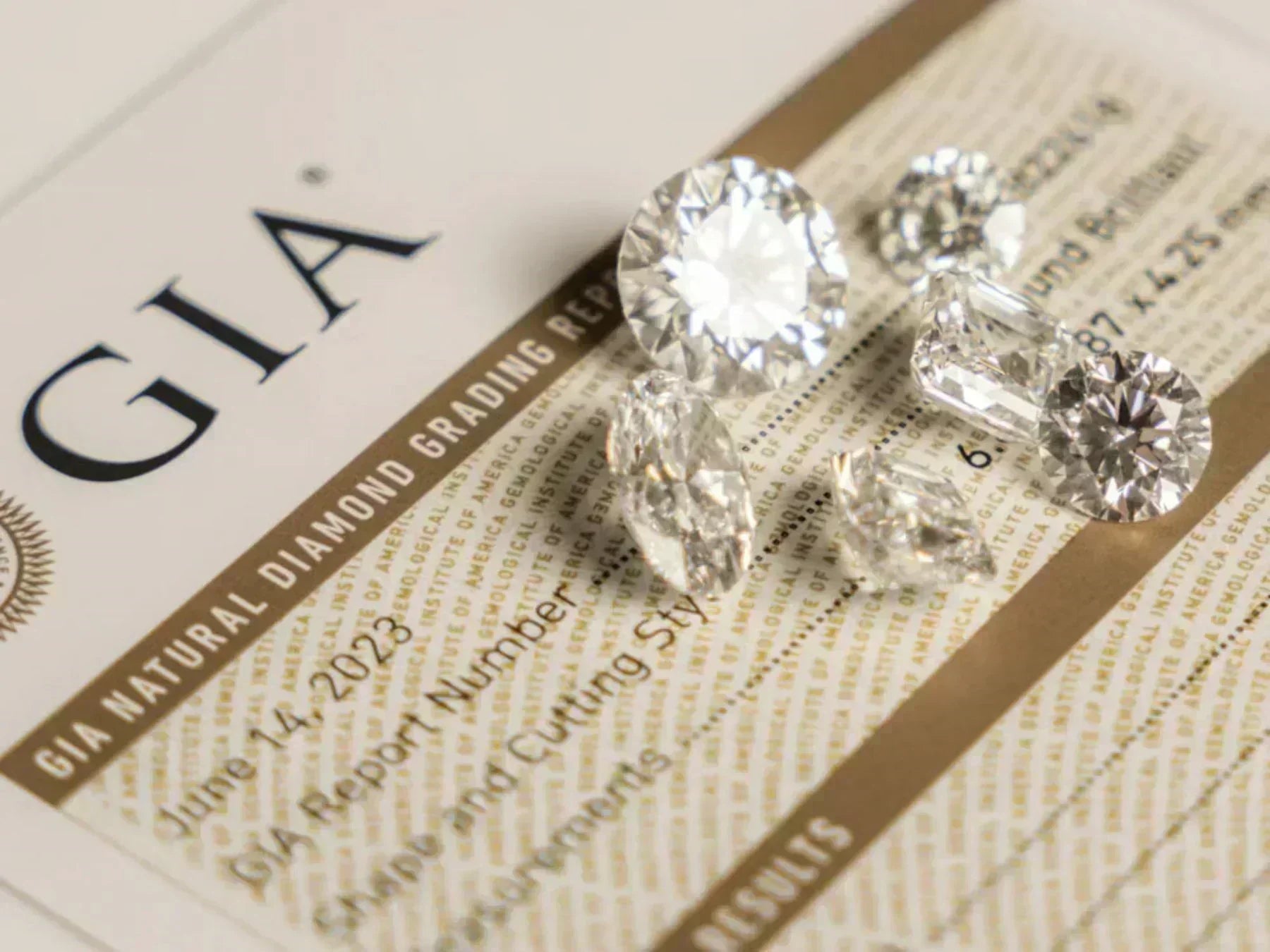
GIA, IGI, HRD: What Diamond Certification Really Means, and Why It Matters
When you invest in a diamond, you're not just buying a beautiful object, you're buying a set of promises. A promise of quality. A promise of authenticity. And, most importantly, a promise of trust. This is where diamond certification comes in.
At The Diamond Expert, we believe certification is the foundation of a transparent, informed and confident purchase. But not all certifications are created equal. In this guide, we’ll explain what diamond certification actually is, why it matters, and how to tell the difference between the top three global grading laboratories: GIA, IGI and HRD.
What Is Diamond Certification?
A diamond certificate (also called a grading report), is a professional document created by a third-party gemmological laboratory. It describes the specific characteristics of a diamond: its carat weight, colour, clarity, cut (the 4 Cs) and many other attributes. It’s essentially a passport for your stone and each diamond is unique, think of it like a fingerprint!
Unlike an appraisal, which estimates a diamond’s value, a certificate offers an unbiased assessment of quality. The value may change over time; the certificate does not.

How Do I Know If My Diamond Is Certificated?
This is a question we’re asked all the time, and it’s a very important one.
Here’s how you can check:
1. Ask for the Certificate
A reputable jeweller will always provide the certificate when selling a certified diamond. If you were never given one, it may not exist.
2. Look for a Laser Inscription
Most certified diamonds (particularly over 0.30ct) have a tiny laser inscription on the girdle (outer edge) visible under magnification. This number should match the report and can be verified online through the certifying lab's database.

3. Check the Paperwork
Certification is different from a valuation or sales receipt. If your diamond only came with a “valuation” or an in-house appraisal, that’s not the same as an independent certificate.
4. Use the Lab’s Online Tools:
If you have a certificate number, you can input into the laboratory’s online report check and verify that all the details match your diamond. If you’re unsure, we’re always happy to inspect your diamond for you and confirm if it’s certified.
Why Does Certification Matter?
In short: it protects you. When you’re buying a certificated diamond, you’re not relying solely on the word of the seller. You’re getting a professional, independent report that verifies exactly what you’re purchasing.
Certification helps you:
- Compare diamonds accurately
- Avoid overpaying for inferior stones
- Resell, insure or upgrade your piece with confidence
- Understand what gives your diamond its unique beauty and value
If a jeweller ever offers you a diamond without certification, or with a vague in-house grading, you should be extremely cautious. You may be buying something very different to what you’ve been told.
Who Are the Top Three Grading Bodies?
There are many laboratories offering diamond certification, but three stand out internationally: GIA, IGI and HRD. Here’s what you need to know about each:
GIA: Gemological Institute of America
Global gold standard
Founded in 1931, GIA is considered the most rigorous and consistent diamond grading authority in the world. It is a non-profit organisation with no commercial interest in the diamonds it grades.
Why we trust GIA:
- Grading is conservative and consistent
- Certificates are recognised worldwide
- Reports are highly detailed and precise
- No in-house trading or retail sales
At The Diamond Expert, we prioritise diamonds with GIA certificates. GIA certificates ensure that what you’re buying is exactly what you’re being sold, down to the tiniest nuance.

What’s included in a GIA report?
- Carat weight
- Cut, colour, and clarity grades
- Measurements and proportions
- Polish and symmetry
- Fluorescence
- Laser inscription (on request or standard for some sizes)
- Plotting diagram of inclusions (for diamonds 1ct+)
If you ever resell or insure a diamond, a GIA certificate carries weight and credibility globally.
IGI: International Gemological Institute
Strong for lab grown diamonds
IGI is a privately-owned lab founded in 1975. In recent years, it has become particularly well-known for certifying most of the world’s lab grown diamonds, a market GIA entered more cautiously.

Pros:
- Popular in the lab grown diamond industry
- Slightly faster turnaround times than GIA
- IGI reports are more readily available from lab diamond suppliers
Cons:
- Historically considered slightly looser in grading (though this is improving)
- Less recognised than GIA in certain resale or insurance contexts
We use IGI certification for lab grown diamonds, particularly for clients who want larger stones at more accessible price points. For these, IGI provides a good balance of reliability, availability, and cost.
That said, we always educate our clients on the nuances between IGI and GIA grading scales. For example, with natural diamonds, an IGI “VS1” may not be graded exactly the same as a GIA “VS1.” We help you understand the difference.
HRD: Hoge Raad voor Diamant
Europe-based, lower consistency
Based in Antwerp, HRD was once a major player in the certification world, particularly in Europe. However, its reputation has waned in recent years due to inconsistencies in grading and less global recognition.

Pros:
- Useful in European markets for natural diamonds
- Still accepted by some insurers and retailers
Cons:
- Less consistent than GIA or IGI
- Reports sometimes viewed with scepticism in U.S. and Asia
- Not widely used for lab-grown certification
At The Diamond Expert, we rarely work with HRD-certified stones unless specifically requested. If we do, we scrutinise the certificate and diamond closely and do a side-by-side comparison with a GIA or IGI equivalent so we know we’re choosing the best possible diamond.
Common Red Flags in Certification
Be cautious of:
- Generic “appraisals” used in place of grading reports
- Labs with poor reputations, such as EGL or lesser-known regional labs
- Missing information such as polish, symmetry, or fluorescence
- Reports with no laser inscription, making them difficult to verify
A legitimate certificate should be easily verifiable online via the lab's database.
Our Commitment to Certification at The Diamond Expert
We only source certificated or certified diamonds. Every single one of our diamonds is certificated or certified by the GIA (natural) and IGI (lab grown).

More importantly, we help you read and understand the certificate in plain English. We don’t expect you to be a gemmologist. We walk you through the report, explain what’s important, and highlight how it impacts your diamond’s beauty and value.
We also help you balance quality and budget. For example, a GIA certificated diamond with F colour and VS2 clarity may offer the same visual impact as one with higher grades, at a better price.
This is where our expertise makes all the difference.
Final Thoughts: Buy the Diamond, Not Just the Certificate
Certification matters. But it’s not the only thing that matters. Two diamonds with identical reports can look completely different in real life. Why? Because a grading report can’t capture nuance: light performance, brilliance, fire, or overall presence.
That’s why at The Diamond Expert, we combine certification with curation. We handpick every diamond, ensuring it meets our exacting standards, not just on paper, but in person.
So yes, always buy a certificated diamond. But more than that, buy from someone you trust and like!
Need help decoding a certificate? Whether you already have one or you're searching for your perfect stone, we’re happy to walk you through the details.
Get in touch for a no-pressure a consultation and see how much more confident you’ll feel when you have a true expert on your side.

The Diamond Expert

